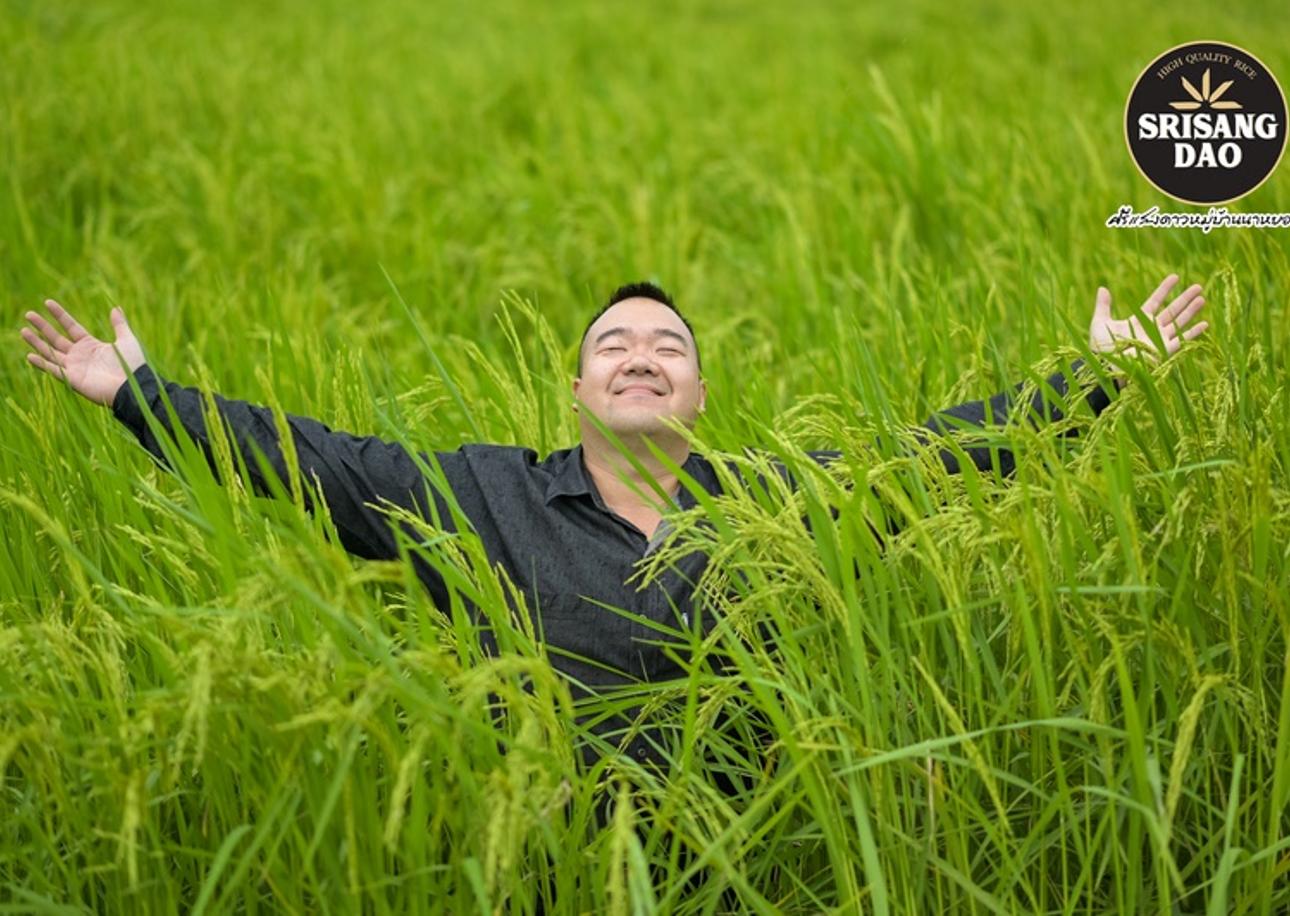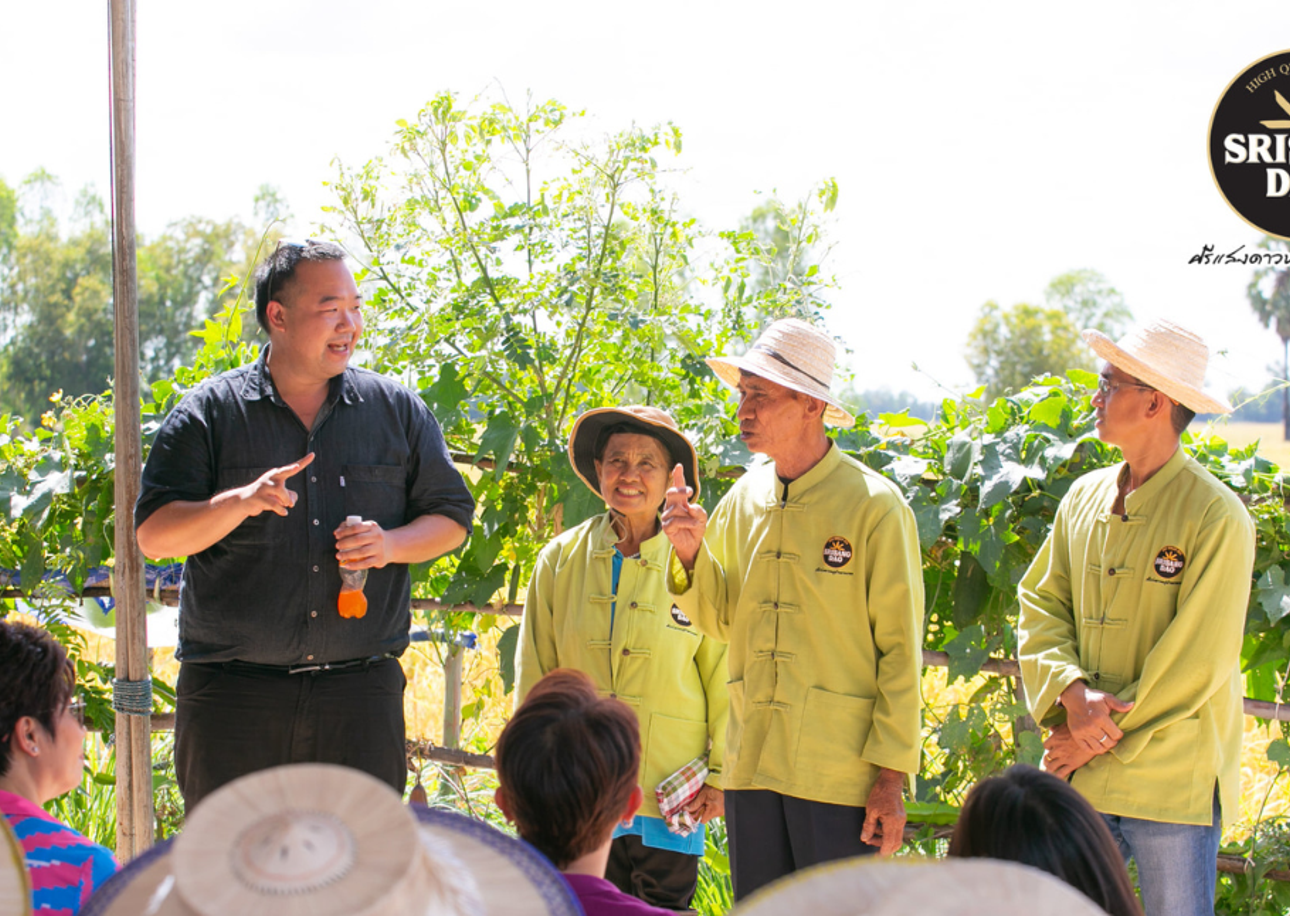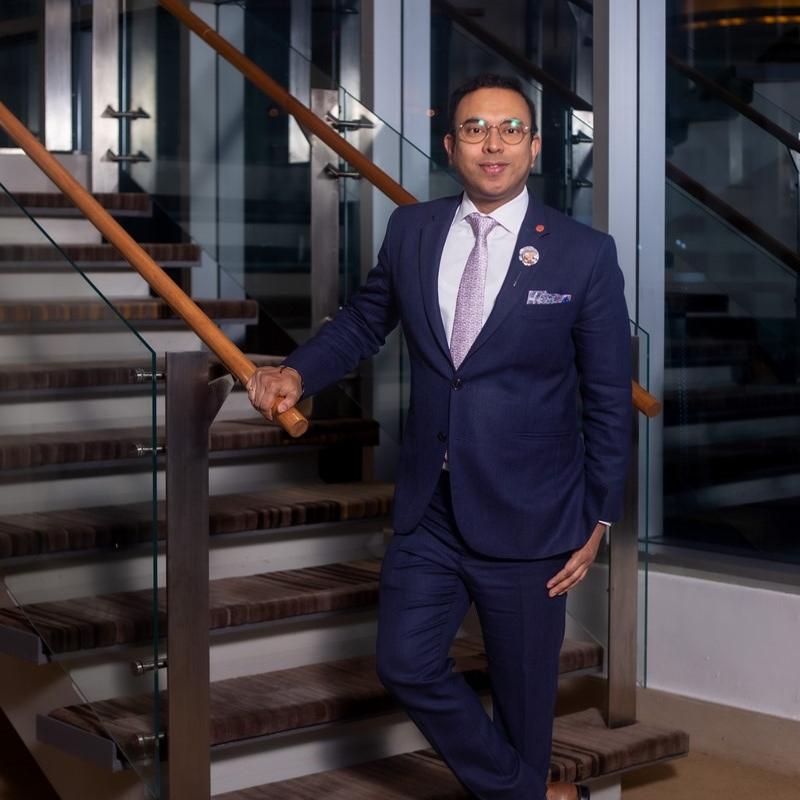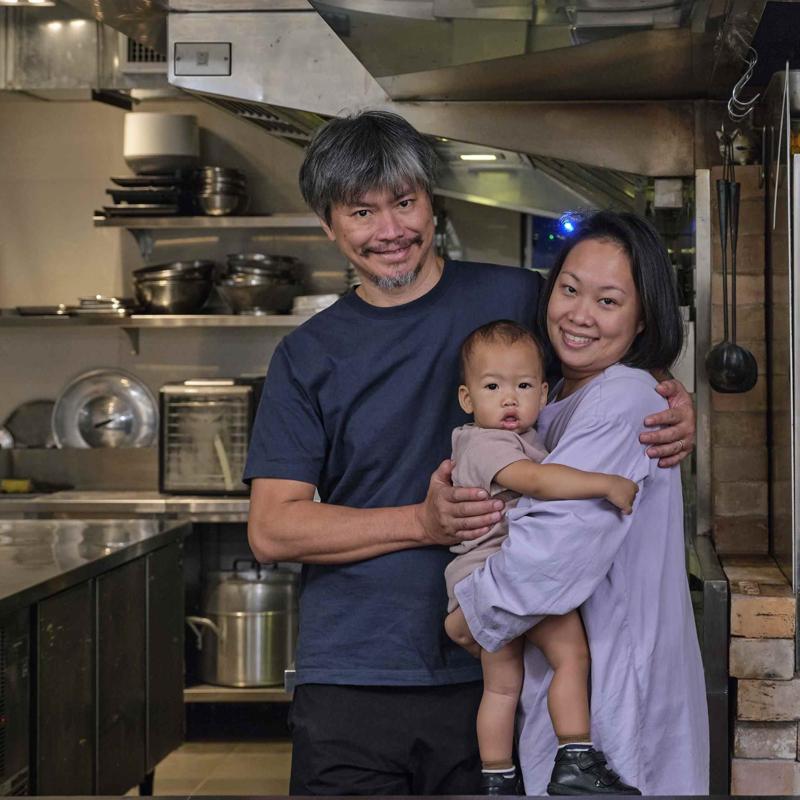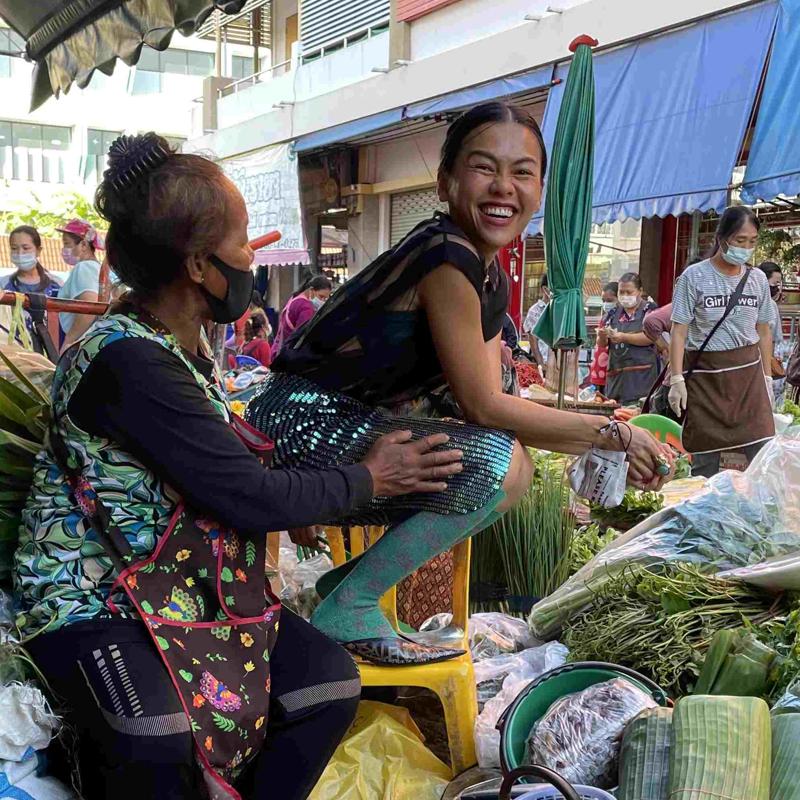Sinh Srisaenpang’s sustainable rice farming, promoting Thai Hom Mali Rice and Geographical Indications, exemplifies transformative dedication for a prosperous, eco-friendly future
Rice is an essential staple in many Asian cultures, including Thailand. It serves as a fundamental dietary staple and symbolises sustenance and tradition. Its significance extends beyond mere sustenance, with cultural, social, and economic importance deeply ingrained in Asian communities.
Sinsamut “Sinh” Srisaenpang, the Founder and Managing Director of Srisangdao Rice, abandoned direct sales and music to fulfil his childhood dream of becoming a rice mill owner. He set out on a mission to promote efficient rice farming practices in his community, ultimately reducing costs, improving yields, and achieving self-sufficiency. Sin also pioneered the export of Thung Kula Rong Hai Hom Mali rice to Europe and won awards for sustainable rice packaging design. His dedication to agriculture and community earned him the privilege of hosting HRH Princess Sirindhorn on World Soil Day.
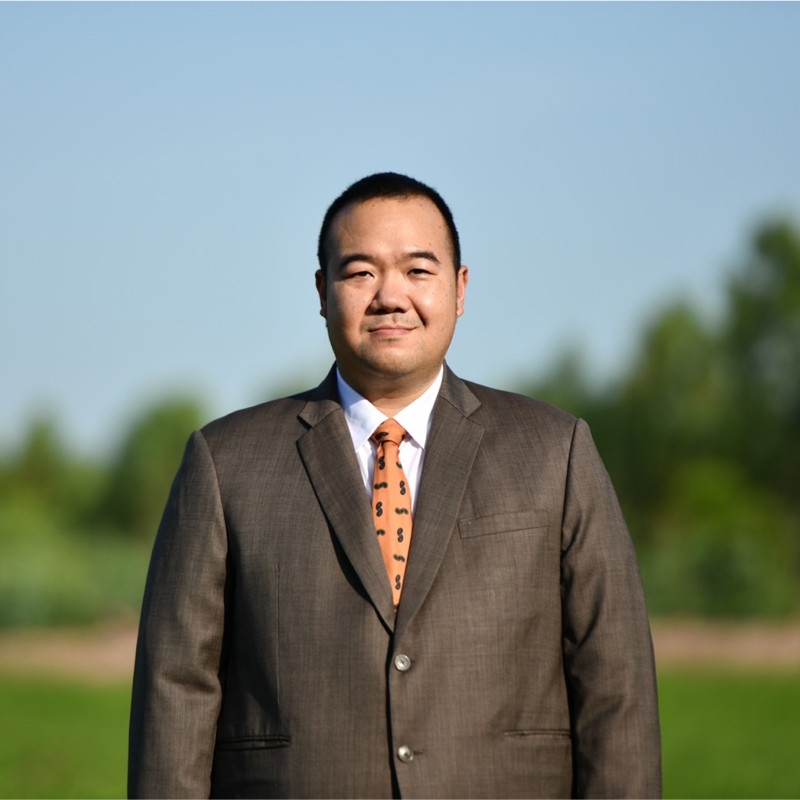
The Resurgence of Thai Hom Mali Rice
Hom Mali rice, commonly known as jasmine rice, is considered the best choice for Thai people because of its exquisite floral fragrance, subtly sweet and nutty flavour, ideally soft and slightly sticky texture, cultural significance in Thai traditions, and Thailand’s reputation for exporting high-quality rice. This aromatic rice variety enhances the flavours of Thai cuisine and plays a significant role in Thai culture and culinary traditions.
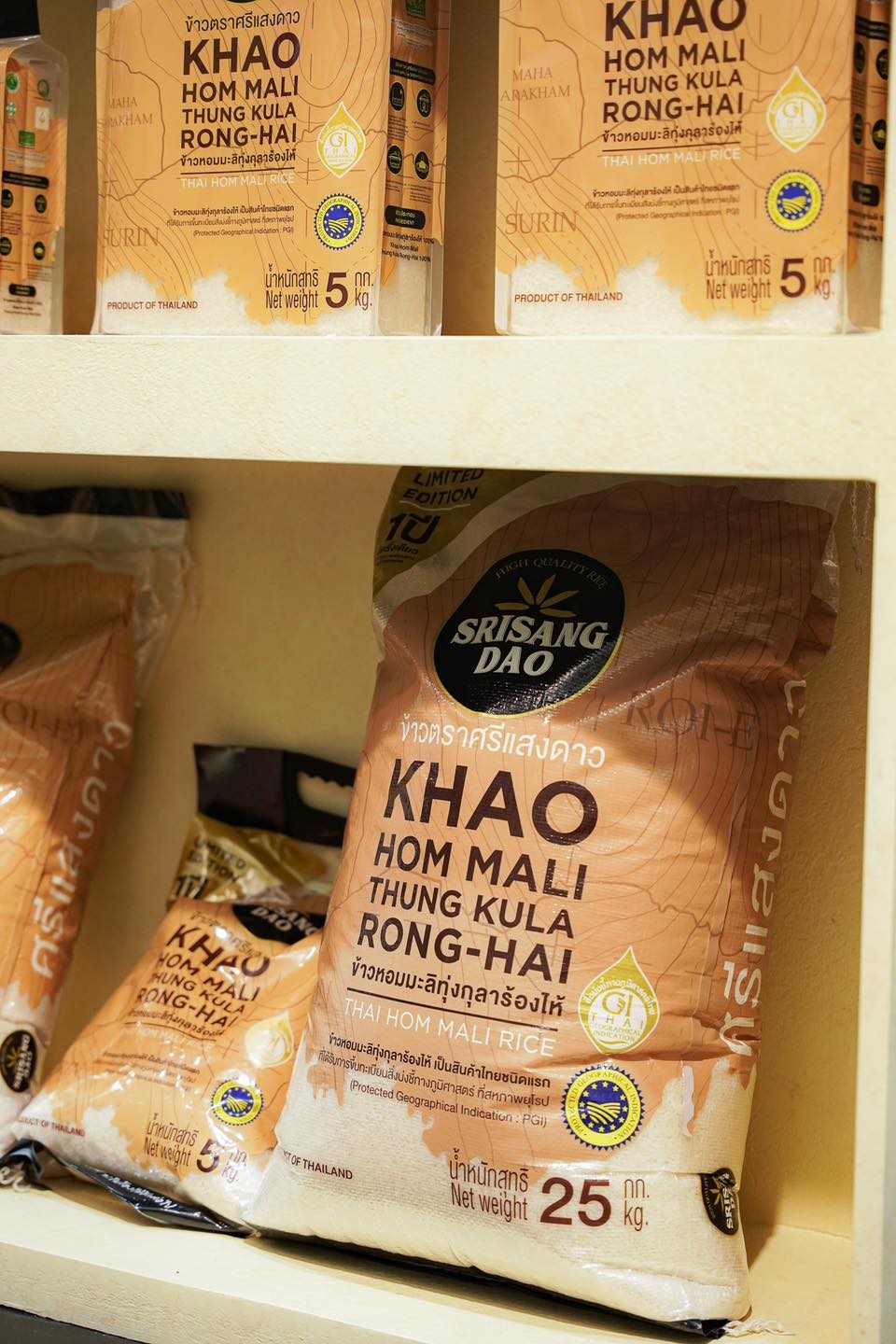
Photo: Courtesy of SRISANGDAO FB
Thai Hom Mali Rice, also known as wild rice, originally hails from Chachoengsao Province but became famous in the Thung Kula Rong Hai area due to its aromatic fragrance and soft texture. This distinct variety earned recognition as the first Thai product with Protected Geographical Indication (PGI) in the European Union, proudly representing Thailand’s agricultural heritage. Srisangdao Rice played a pivotal role in preserving and promoting this unique rice.
Empowering Farmers Through Innovative Farming
Sinh’s commitment extended beyond rice cultivation; he helped local farmers transition from traditional broadcasting methods to dry direct seeding in rows, reducing production costs and enhancing productivity. Through advanced techniques like soil analysis, laser land levelling, weather forecasting, and drone technology, he empowered farmers to embrace modern, sustainable practices. This technological shift has inspired neighbouring villages to follow suit, encouraging a shift from traditional to more innovative farming methods.
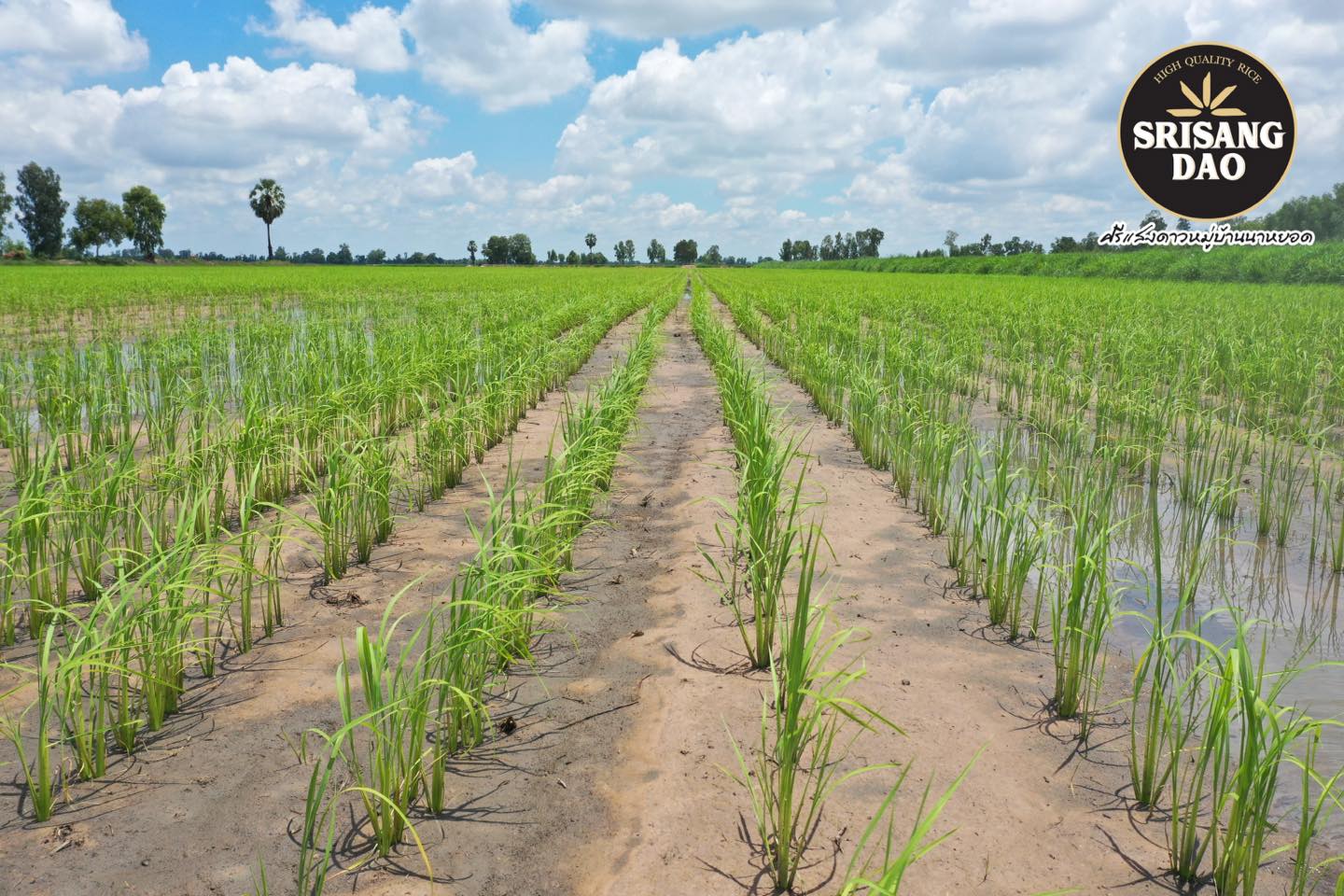
Photo: Courtesy of SRISANGDAO FB
Innovative and Eco-Friendly Packaging
Srisangdao Rice’s packaging serves as a clear symbol of the strong dedication to sustainability. They utilise chaffs, natural waste from the husking process, in their packaging design. The package features rice-shaped embossing, graphics, and the company logo, with the rice sack inside bearing essential information. Moreover, this eco-friendly packaging can be repurposed as a tissue box, further underscoring their dedication to environmentally conscious practices.
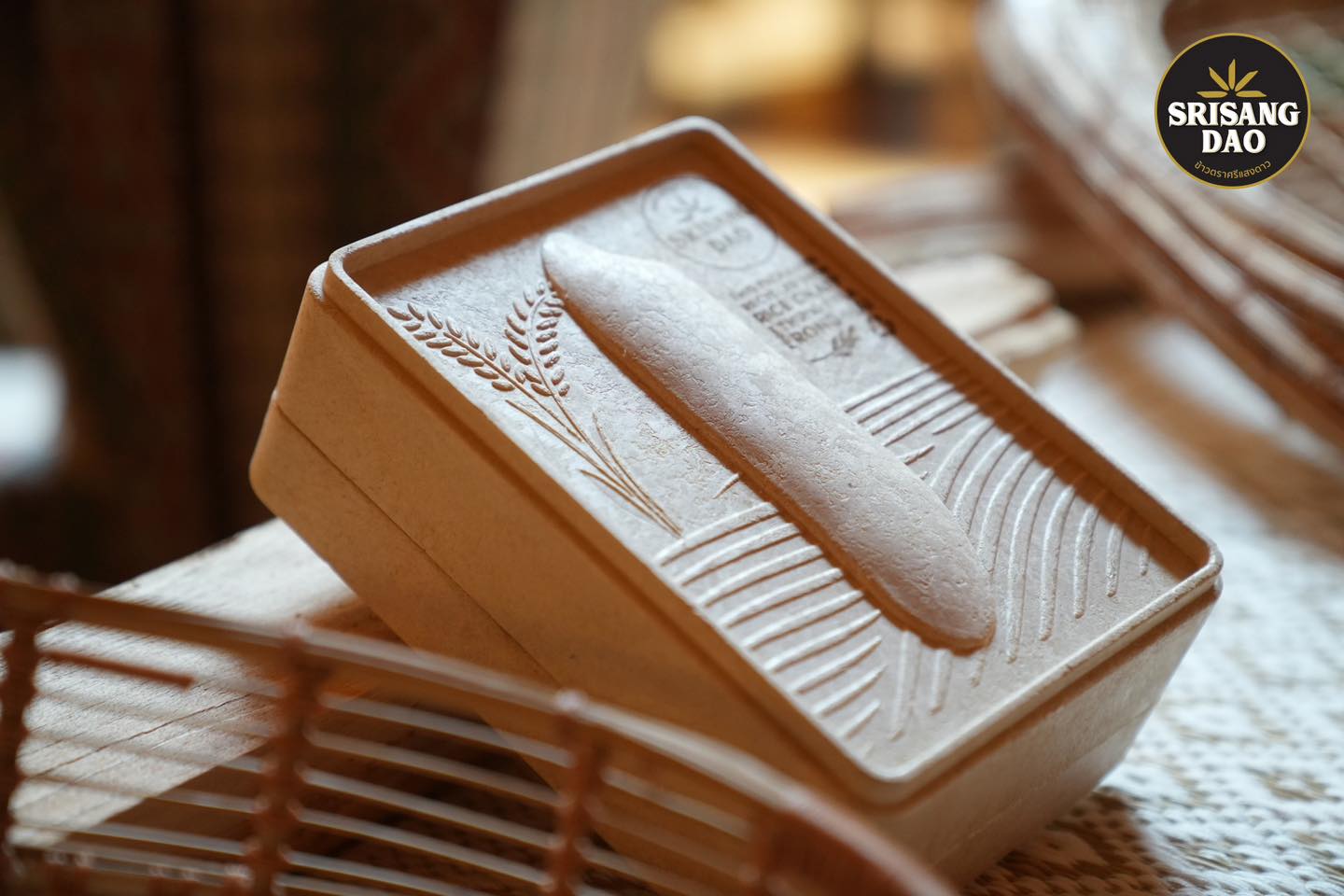
Photo: Courtesy of SRISANGDAO FB
Understanding the Value of Geographical Indications
Initially sceptical of the benefits of Geographical Indications (GIs), Sinh’s perspective changed when he attended the Thailand Trade Fair in 2019. He recognized the power of GIs as a marketing tool and their alignment with initiatives for agricultural development, food preservation, and the production of high-quality, nutritious food. His participation in a Regional Forum on Strengthening Brands, Designs, and Geographical Indications solidified his understanding of the importance of GIs.
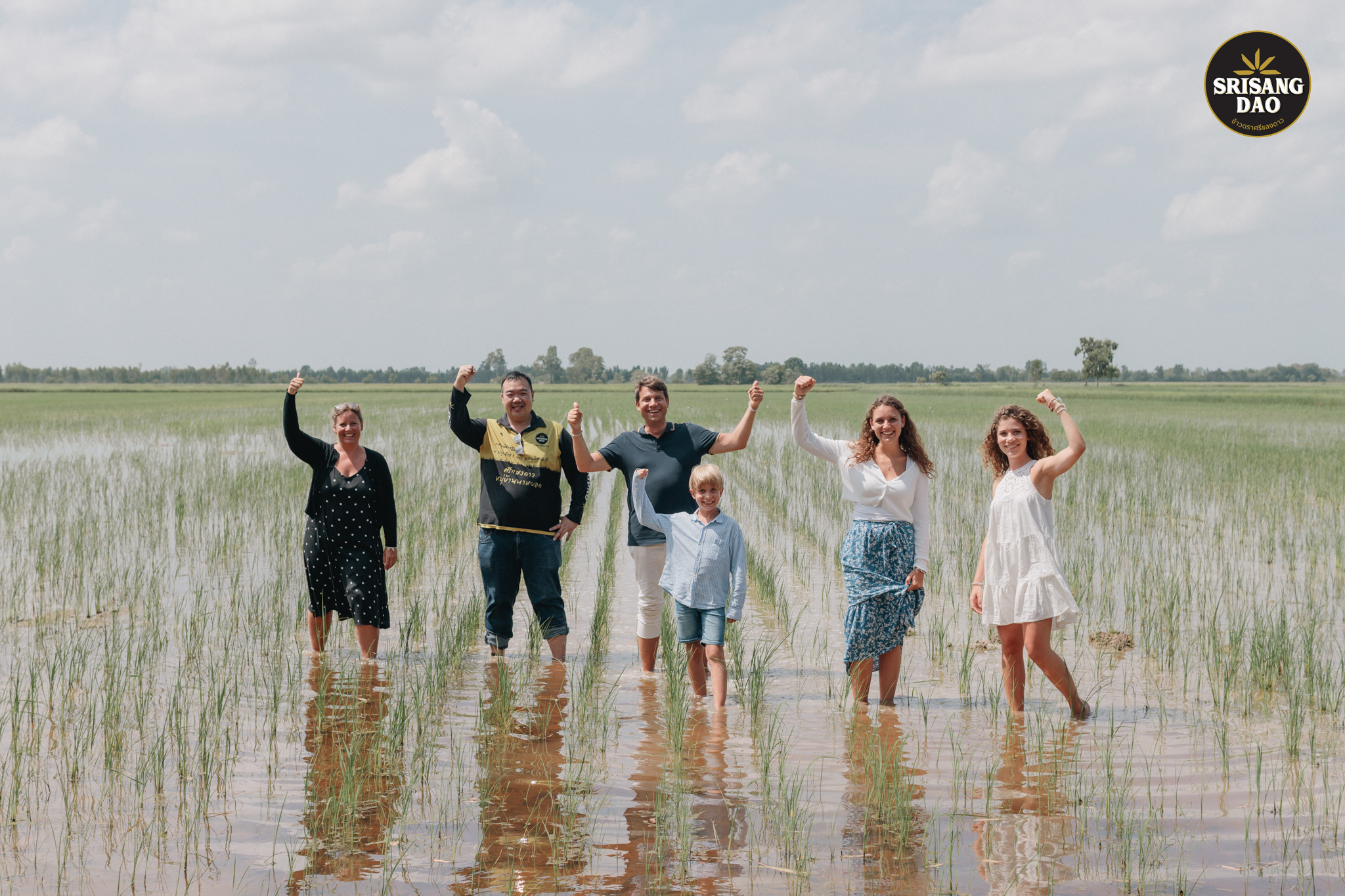
Photo: Courtesy of SRISANGDAO FB
Enrolling More Farmers for Global Recognition
Sinh’s future plans involve expanding the export of GI rice, with a goal to double the volume in 2023. He aims to enrol more farmers to meet growing demand while maintaining a balanced approach to growth. Sinh’s dedication to “Khao Hom Mali Thung Kula Rong-Hai” supports the government and uplifts farmers’ livelihoods and ensures the production of top-quality rice. He remains committed to helping farmers transition to organic farming, reducing the use of chemicals and making a sustainable impact on Thai agriculture.
Sinh’s vision for the future ensures that the positive impact on Thai agriculture will continue to grow, benefiting both the community and the nation at large. His works serve as an inspiring example of how one person’s passion and dedication can bring about transformative change, fostering a more sustainable and prosperous future.


